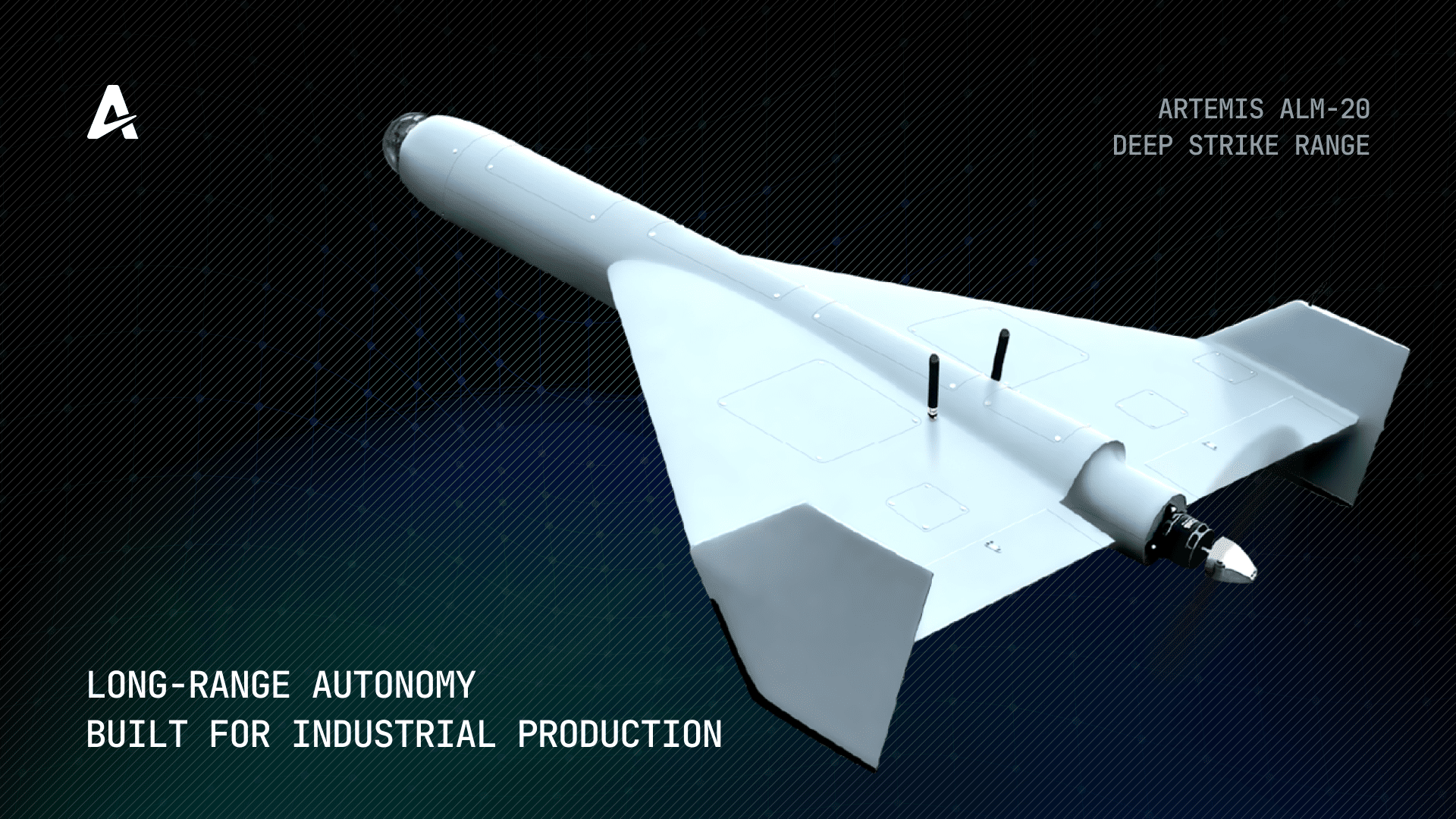A high-tech analogue of Russia’s Shahed strike drone is ready for mass-production in the US after completing combat trials in Ukraine, according to a press release by the machine’s developer, Auterion.
Named the Artemis, the weapon is what its German-American developer calls a deep strike drone developed and proven in Ukraine, in partnership with a Ukrainian company, whose name was kept confidential for security purposes. Auterion said manufacturing lines are being built in the US, Ukraine and Germany.
“Government evaluators have signed off on the program after operational flight tests in Ukraine,” the company wrote in the statement. “The tests included ground launch, GPS and GPS‑denied navigation, long-range transit, and terminal engagement.”
Ukraine is trying its best to open up joint drone production with defense contractors in allied states. Kyiv also has an open call for arms makers from friendly nations to live-test their hardware in the most modern battlefield conditions currently said to exist.
“This is the innovation cycle, and here we are moving quite fast,” Mykhailo Fedorov, First Deputy Prime Minister of Ukraine, said at the Defense Tech Valley Expo in September. “We sent a message to our partners who arrived today: if your products are not being tested in Ukraine today, then you will not be able to stay competitive in the defense market.”
Like a Shahed with advanced battle electronics
Much like Russia’s favorite family of attack drones, the Artemis has a triangular chassis and a rear-mounted propeller. It has a claimed range of 1,000 miles (about 1,600 kilometers) and can carry warheads of up to 40 kilograms.
This is roughly in line with some versions of the Shahed-136, or as Russia brands it, the Geran-2. These drones typically mount 50 kilogram warheads and can fly up to 1,500 kilometers, although variants exist with significantly longer ranges.
The distinction seems to be the Artemis’s purported autonomous capabilities — Auterion specializes in AI-enabled machines.
The Artemis uses the company’s Skynode N mission computer and proprietary visual navigation and terminal guidance systems. The company claimed that this tech lets the drone navigate and strike with precision, even when satellite navigation is disrupted.
“With the Artemis program concluded, Auterion is entering the scale-up phase with the Department of War and allied partners to work towards co‑production at mass scale,” the company wrote in the press release, adding that it's especially interested in the Indo-Pacific region.
Trending Now
Auterion is the same firm that won a $50 million contract to deliver 33,000 AI conversion kits for drones to Ukrainian forces in July. According to the company, these kits transform manually-operated drones into autonomous weapons able to acquire targets using AI.
The company claimed that once activated, the drones become resistant to electronic jamming and can track and engage moving targets from up to a kilometer away.
Ukraine currently relies on skilled pilots to operate most of its drones, but AI-powered autonomous controls have steadily been gaining ground on Ukrainian battlefields.

